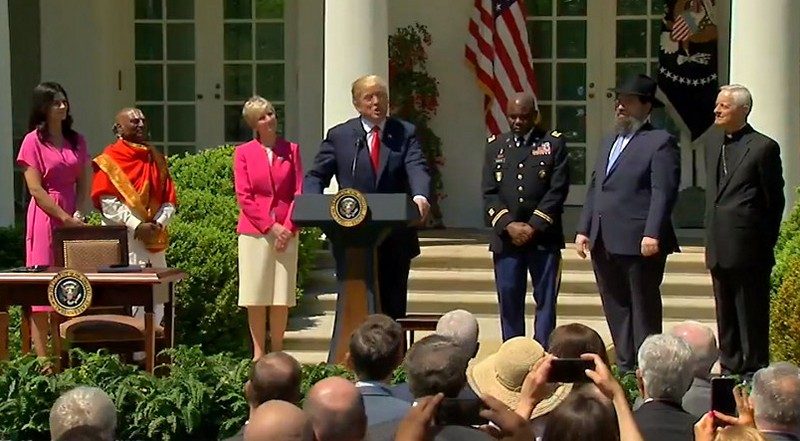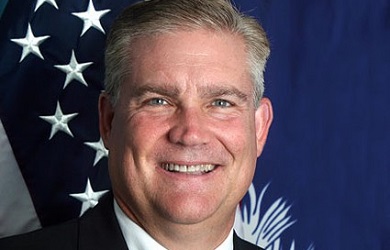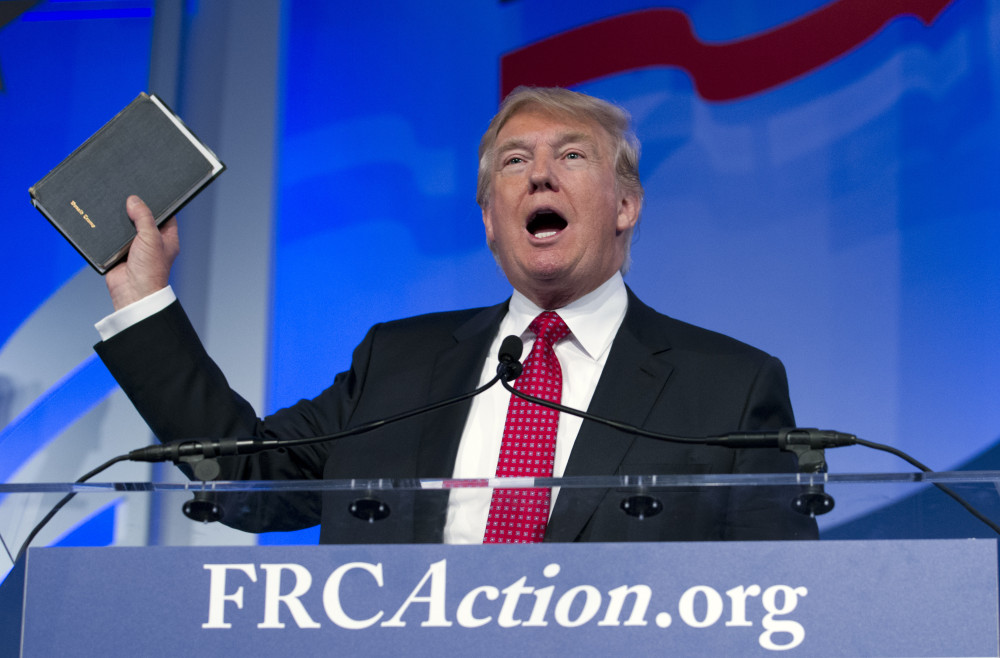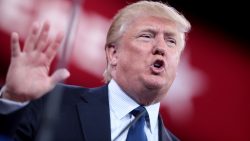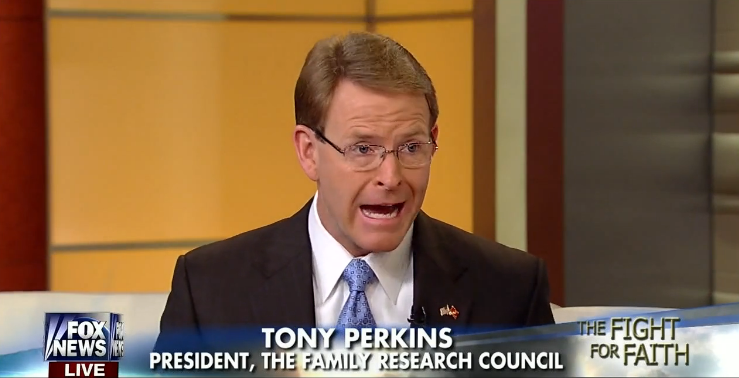President Trump again used the National Day of Prayer to position himself as a champion of religious liberty, speaking to supporters in the White House Rose Garden before signing an executive order directing federal agencies to work more closely with faith-based organizations and to remove barriers to government funding for religious groups. He said his faith initiative will “help ensure that faith-based organizations have equal access to government funding” and said that in solving great problems, “faith is more powerful than government, and nothing is more powerful than God.”
The new order eliminates and replaces references to not-explicitly-religious “neighborhood” or “community” groups that were included in Bush and Obama era programs. It also eliminates an Obama-era protection for individuals who might object to the religious mission of an organization funded with tax dollars to provide social services; agencies will no longer have to make sure that there are alternative providers for people seeking services. Americans United for Separation of Church and State’s Rachel Laser said the order is one more attempt by the Trump administration “to redefine religious freedom to mean the freedom to discriminate against those who do not share your religious beliefs.”
The effort was yet another move by the Trump administration to maintain solid support from conservative white evangelicals who helped put him in the White House and remain his most devoted followers.
“Faith & Freedom Coalition Rejoices,” declared the voter mobilization group founded by political operative Ralph Reed. Tim Head, the group’s executive director, praised Trump, saying the president has once again “delivered on his promises to the faith community with the formation of a White House office to organize the federal government to work alongside faith-based organizations to deliver more effective solutions to poverty, protect religious liberty, and defend the sanctity of human life.”
The Family Research Council’s Tony Perkins was similarly effusive, crediting Trump with “further restoring the nation’s First Freedom of religious liberty.” Perkins also praised Trump for “acknowledging that our faith in God contributes to the guidance and well-being of our country.” On Wednesday, FRC released a document claiming that last year’s executive order “significantly advanced religious freedom” while complaining that many Obama administration policies “demanding affirmation of categories such as sexual orientation and gender identity remain in place, and hang as a cloud over religious freedom insofar as they could be used to force people to violate their sincerely held religious beliefs on these matters.”
The National Day of Prayer was established by law in 1952. Trump used last year’s National Day of Prayer to sign an executive order instructing the IRS not to strictly enforce the Johnson Amendment—which prevents churches and charities from engaging in electoral politics–and asking Attorney General Jeff Sessions to come up with new religious liberty guidelines, which were published in October.
Under Trump’s new order, every agency will be required to staff Faith and Opportunity Offices that will be required to notify Sessions of any violations of his guidance.
To the administration’s credit, the Rose Garden event included prayers from Hindu, Muslim and Jewish speakers, in addition to Christians. In his remarks, Trump gave shout-outs to his spiritual adviser and prosperity preacher Paula White, former president of the Southern Baptist Convention and current National Day of Prayer President Ronnie Floyd, and Cissie Graham Lynch, granddaughter of the late Billy Graham. And Trump repeated a line from his National Prayer Breakfast speech in February, asserting that “America is a nation of believers.” Trump also couldn’t resist taking credit for what he claims is an uptick in the use of the phrase “Merry Christmas.”
The National Day of Prayer Task Force, led for years by Shirley Dobson, and for the past two by Billy Graham’s daughter Anne Graham Lotz, is not only for Christians, the task force says, but adds that “the efforts of the NDP Task Force are executed specifically in accordance with its Judeo-Christian beliefs.” The 2018 National Prayer for America on the group’s site, however, is explicitly and exclusively Christian, saying in part, “We turn away from anything that divides us, and we run toward the gospel of Jesus Christ that is the only thing that has the power to unite us together.”
In response to today’s executive order, Amanda Tyler of the Baptist Joint Committee, a staunch defender of church-state separation, said:
Details matter. We know from our experience and advocacy efforts with the prior two administrations that government and religious organizations can partner in constitutional ways to deliver social services, but that getting it right takes more than a proclamation and a Rose Garden ceremony.
Standing up for religious freedom requires both protecting the free exercise rights of all Americans and ensuring that government neither promotes any one faith tradition nor favors religion over irreligion.
Melissa Rogers, who directed the White House Office of Faith-Based and Neighborhood Partnerships under President Obama, suggested that Trump should “retract and apologize for his call for ‘a total and complete shutdown of Muslims entering the United States,’” and “should also pledge to respect and vigorously protect the equal rights of Americans of all faiths and none, including the rights of American Muslims to religious freedom.”





